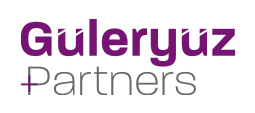The requirement of social isolation caused by the global pandemic, has brought forth a new world order. During this period, workplaces invested in technology in order to preserve their business and enhance their productivity while starting to conduct almost all their activities through digital communication channels. Home offices/remote work that began during such period now became a permanent working model across different sectors.
What is the Right to Disconnect?
The right to disconnect simply refers to the right of an employee not to respond to messages or calls, without any concerns, if they are contacted outside of working hours via e-mail or other work-related electronic communication channels.
Due to homes becoming offices as a result of the pandemic, the flexibility such created in working hours began to take away employees’ right to rest and leisure. The widespread use of digital devices puts pressure on the employees to be constantly accessible. The employee, thinking they have to answer even to non-urgent emails or calls at midnight, experiences a potential danger in terms of their health with the burden of being available at all times. In other terms, the blurred line between professional life and private life creates the necessity of protecting the fundamental rights and freedoms of the employee, especially their right to rest.
“Not Being Accessible Outside of Working Hours Cannot Be Grounds For Rightful Termination”
Although the Right to Disconnect is not yet directly regulated within the Turkish legislation, it is deeply associated with Article 50 of the Constitution regulating the right to rest and Article 24 of the Turkish Civil Code regulating personal rights.
Under the provisions of the Labor Law regarding working hours, it is accepted that the employee has the freedom not to work outside of working hours, except for special circumstances. In this regard, being inaccessible is not a rightful ground for termination of the contract, unless the employee gives written consent to be available during their resting hours. Workplaces that expect their employees to stay fully available outside of working hours are required by law to obtain written consent from the employees, except when the matter at stake cannot be postponed to working hours. On the other hand, there is no violation of such right if the employee continues to work voluntarily during their rest period.
How Did the “Right to Disconnect” Emerge?
In the case that the right to disconnect is not adopted and implemented, some of the most fundamental human rights and freedoms face a great threat.
The discussions regarding the right to disconnect began through a lawsuit filed in 2004 before the French Court of Appeals, where an ambulance driver dismissed his employer’s call during the lunch break. The French Court of Appeals ruled in favor of the driver, stating he had the right to disconnect during his break and thus the termination was unlawful. Following this court decision, reform studies were carried out under the leadership of the then French Minister of Labor, Myriam El Khomri, in order to improve the effects of digital transformation on workers' rights. To that end, expert reports by numerous institutions were evaluated to draft a legal amendment. As a result of the studies carried out, the "Law on the Modernization of Work, Social Dialogue and the Assurance of Professional Career" introducing the provision regarding the right to disconnect to the French Labor Law came into force on January 1, 2017. Following in the tracks of France, other European countries such as Italy, Spain, Belgium, and finally the state of Ontario in Canada made reforms regarding the right to disconnect and incorporated this right into their legislation.
The Parliament of the European Union prepared and published the draft directive on the right to disconnect on January 21, 2021, and as a result, steps are being taken to ensure that all member states introduce minimum standards that will be integrated into their own legislations in order to improve the working conditions of workers. In Turkey, although it is not directly included in the legislation, said right is considered an extension of the right to rest as well as the fundamental rights and freedoms that are under constitutional protection.
Latest Developments Across the Globe on the “Right To Rest”
New Debates on the Reduction Of Workdays
In an effort to stop the decline in productivity stemming from the uncertainty of working hours, another debate sparked on the reduction of working days after the right to disconnect. The Belgian Government's newly implemented policy of 4-day workweek, which has been on the agenda of social media in the recent past, is also closely related to the right to rest. With this method, the aim is for the employees to lead a high quality and low stress life by providing more time and space for family life. This is beneficial, not only for the employees but also for the employers, as the productivity and the value created by employees will increase during these 4 working days. Even though other countries also began to question their employment models with the Belgian innovation, it is clear to see that the reduction in working hours is a tough sell for some big scale corporations. Undoubtedly, as this test run in Belgium yields results, there will be more to discuss in the near future.
By I. Selin Nacar Ozturk, Associate, and Beliz Boyalikli, Legal Intern, Guleryuz & Partners


